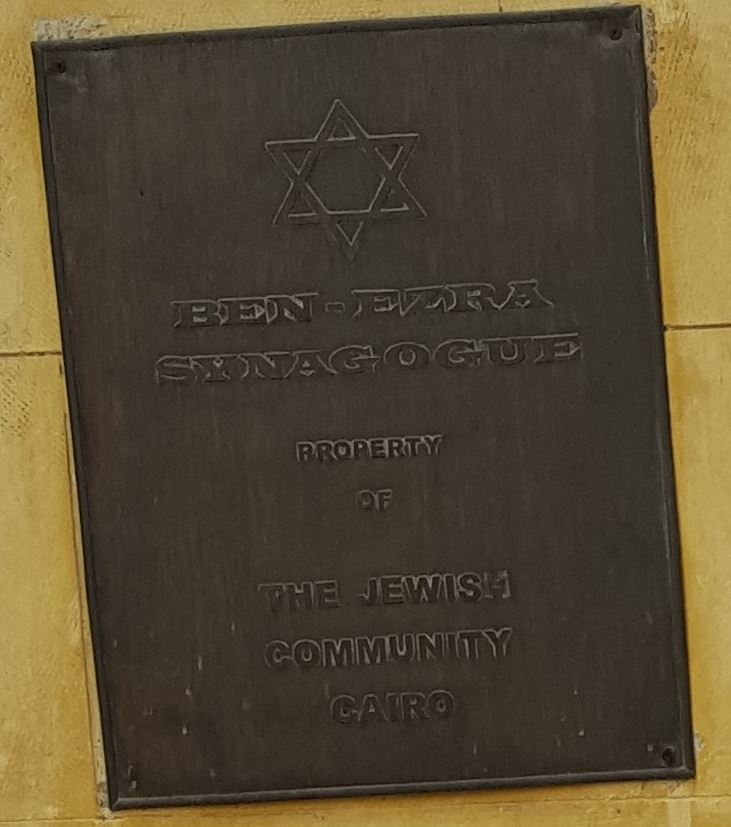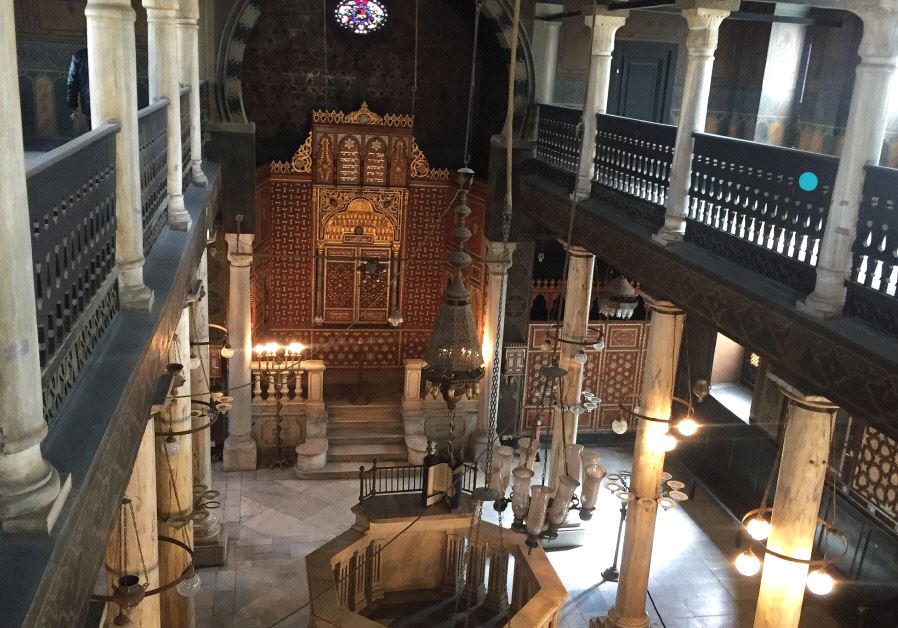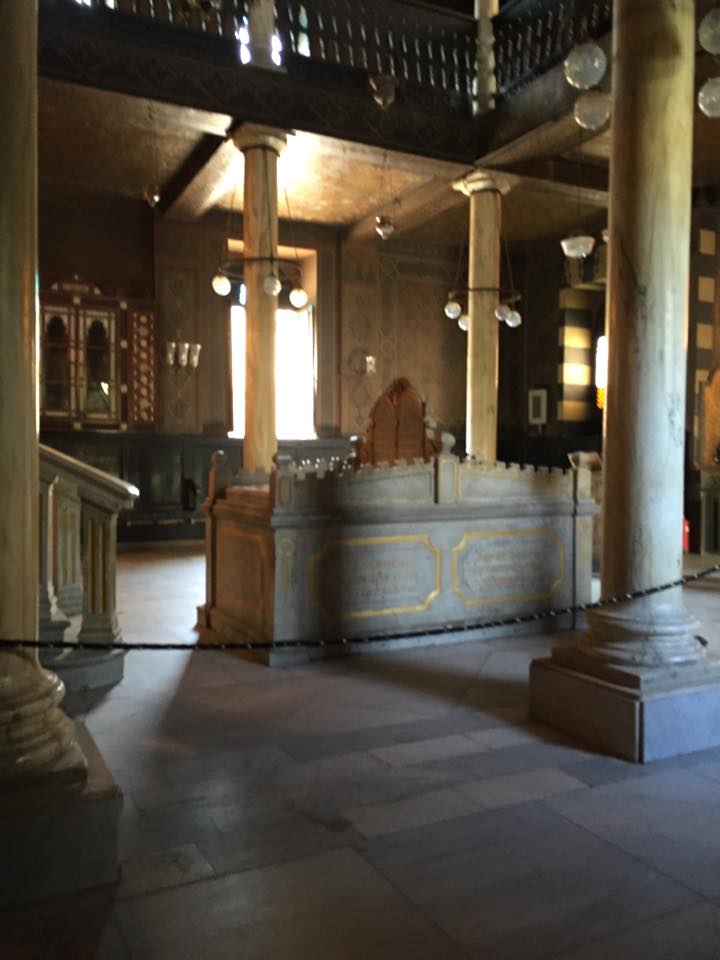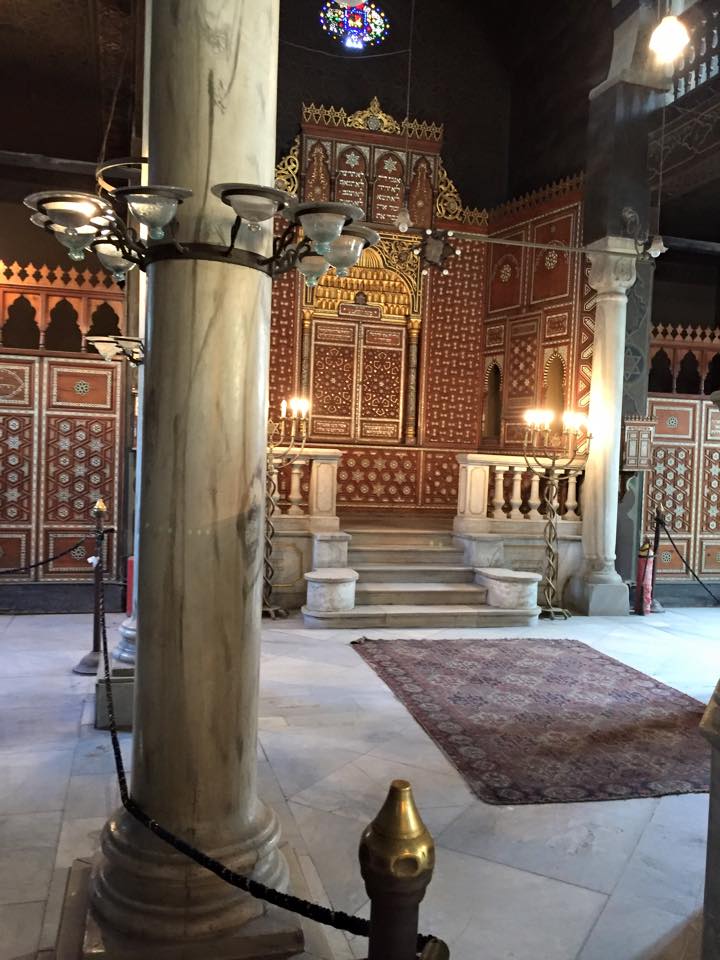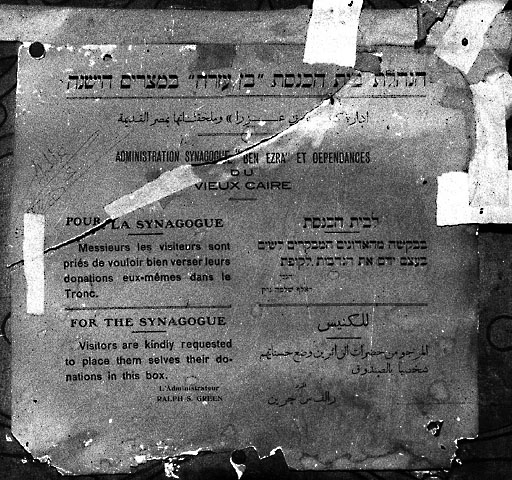Ben Ezra Synagogue
This was the synagogue whose geniza or store room was found in the 19th century to contain a treasure of abandoned Hebrew, Aramaic and Judeo-Arabic secular and sacred manuscripts. The collection, known as the Cairo Geniza, was brought to Cambridge, England at the instigation of Solomon Schechter and is now divided between several academic libraries.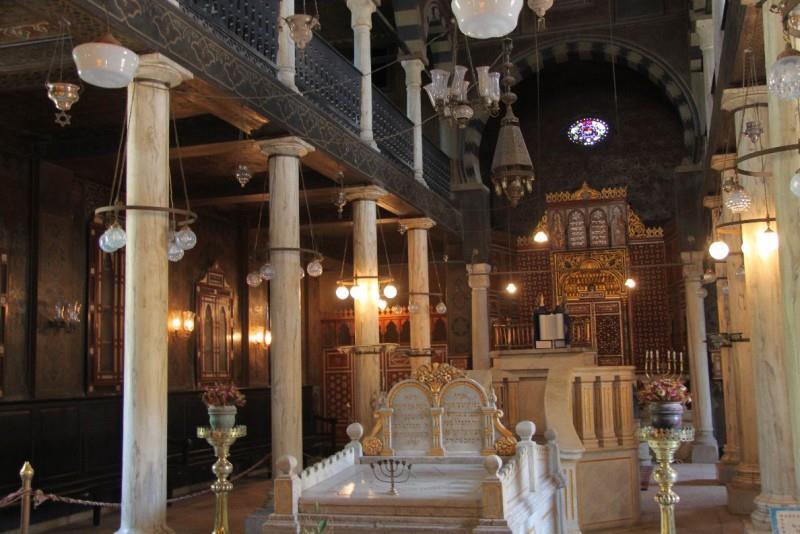
Ben Ezra as an institution is ancient, and has occupied at least three buildings in its history. There have been many major and minor renovations. The current building dates to the 1890s.[3]
The founding date of the Ben Ezra Synagogue is not known, although there is good evidence from documents found in the geniza that it predates 882 C.E. and is probably pre-Islamic.[3][4] In 882, the patriarch of the Coptic Orthodox Church of Alexandria sold a church and its grounds to a group of Jews, and some 19th century scholars had assumed that this was the origin of Ben Ezra. However, the buyers were followers of the Talmudic Academies in Babylonia, and Ben Ezra was a congregation that observed the teachings of the rival Talmudic Academies in Syria Palaestina.[4] Modern scholars agree that the 882 land sale was to a rival synagogue. [5]
Little is known about the original building. In about 1012, Fatimid caliph Al-Hakim bi-Amr Allah ordered the destruction of all Jewish and Christian places of worship. The original Ben Ezra Synagogue was torn down, "its bricks and timber sold for scrap".[4] The next caliph Ali az-Zahir allowed reconstruction of Christian and Jewish institutions, and the synagogue was rebuilt in the 1025-1040 period.[4][3] Study of a carved wood Torah ark door reliably attributed to the synagogue sheds light on the history of the synagogue's renovations. The door is jointly owned by the Walters Art Museum in Baltimore, and the Yeshiva University Museum in New York. Radiocarbon dating verifies that the wood goes back to the 11th century C.E.[6]
- Synagogues/Ben Ezra Synagogue_ A Different Side of Old Cairo _ Cairo 360 Guide to Cairo, Egypt.pdf
- https://en.wikipedia.org/wiki/Ben_Ezra_Synagogue
- http://www.lib.cam.ac.uk/collections/departments/taylor-schechter-genizah-research-unit
Pictures provided by © Nahed Aref

